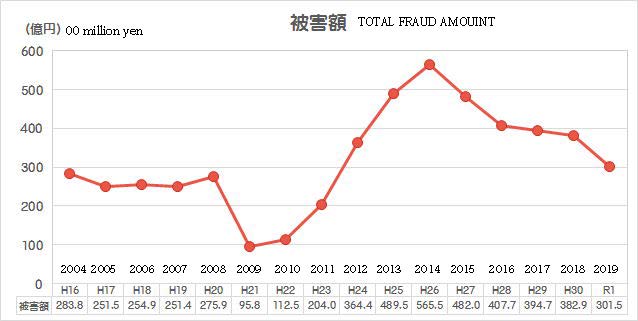John Ramseyer’s paper “Outcast Politics and Organized Crime in Japan; the Effect of Terminating Ethnic Subsidies” is an interesting research into the dynamics of the former “Dowa” regions, which have been subjected to deep-rooted discrimination in Japan. Interestingly, he argues in the online 2017 version that the end of the subsidies to the Dowa regions coincided with the significant decline in membership of the Japanese mobs, particularly among the youth:

Needless to say, the decline of the former mobster groups coincided also with the introduction of anti mobster legislation in 1991 which seriously restricted the traditional mobsters’ ability. Ramseyer does not deny this, but nonetheless argues that the termination of subsides also contributed to the fascinating development, without citting any evidence:

The reality is far less clear cut, however, compared to the rosy description above. As all Japanese know, the Japanese society is now facing, instead of traditional Yakuza, the emergence of “Han Gure”, or young semi mobster groups who are not subject to the anti mob legislation. These young groups are known to control a variety of entertainment joints including “clubs” in fashionable districts. They also organize events which attract thousand of youths. Most importantly, it is the work of these Han Gure that sophisticated new fraud scheme has grown targeting the aged. The fraud uses a trick to force the elderly to operate the bank cash dispensers to wire the money to their accounts, or use mock delivery service to extract cash from them. In total about 30 billion yen (300 million dollars) is stolen this way each year.
In 2019, their overseas “call center” was discovered in Thailand and 15 suspects were arrested. This level of sophistication and internationaliation was unthinkable for traditional Yakuza.

In reaching his rosy conclusion, Ramseter entirely fails to grasp the implications of or recognize these latest developments which are far more widespread, sophisticated and vicious, even though they already became a serious social phenomenon when the paper was published in 2017. Young New Yakuza’s shrewdness outsmarted Ramseyer.
ラムゼイヤー教授の「Outcast Politics and Organized Crime in Japan; the Effect of Terminating Ethnic Subsidies」という論文は従来「同和」地域とされ根深い差別にさらされた地区の新たな展開を論じるものとして興味深い。彼の結論は地対財特法による助成の終了と、暴力団構成員、特に若者の構成員が大きく減少したと指摘する。
いうまでもなく、暴力団構成員の減少は1991年の暴対法の導入後に生じており、同法が暴力団の活動を大幅に制限したことは明らかである。彼はこの点を否定しないが、助成の廃止と暴対法の両方がこの変化をもたらしたと(証拠を示さずに)結論づけている。
実態は彼の描く理想型ほど簡単ではない。よく知られているように、現在の日本社会にとり敵は伝統的な暴力団というよりも、若者の「半グレ」集団となりつつある。半グレは暴対法対象ではなく、ファッショナブルな地区の「クラブ」を含めさまざまなエンタテインメント店舗を取り仕切るほか、数千人に及ぶ若者を引き付けるイベントも手掛けている。特に年配者を対象とする振り込め詐欺など巧妙な詐欺事件も半グレの仕業とされている。その手口は年配者になれないATMを操作させて送金させ、または宅配業者を装って現金を取り上げてなど巧妙極まる。こういった詐欺事件の被害総額は年間300億円にも及ぶ。
2019年にはタイでこれら集団の振り込め詐欺用「コールセンター」が摘発され15人逮捕されているが、これだけの洗練された手口や国際性は伝統的な暴力団では考えられない。
ところが、ラムゼイヤー教授のペーパーは暴力団犯罪を論じるにもかかわらずこういった極めて大がかり、巧妙かつ悪質な展開を考慮するどころか全く気づいていないようだ。ペーパーが発表された2017年には振り込め詐欺や半グレの横行は目に余るものになっていたにもかかわらずである。半グレの知恵にはラムゼイヤーも勝てなかったということだ。
